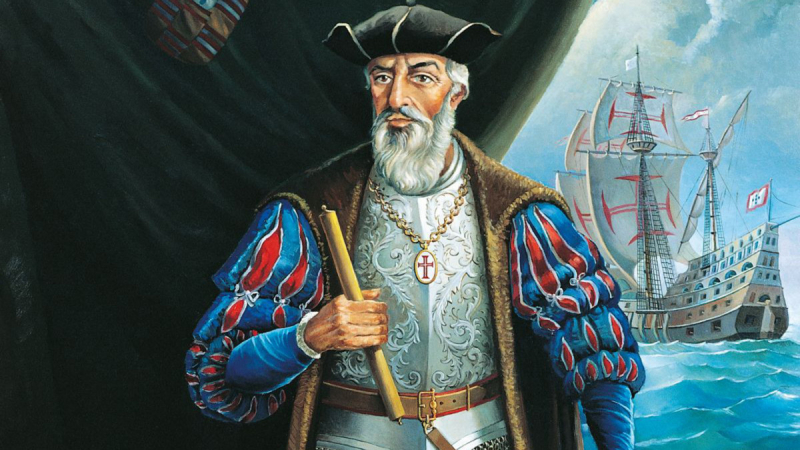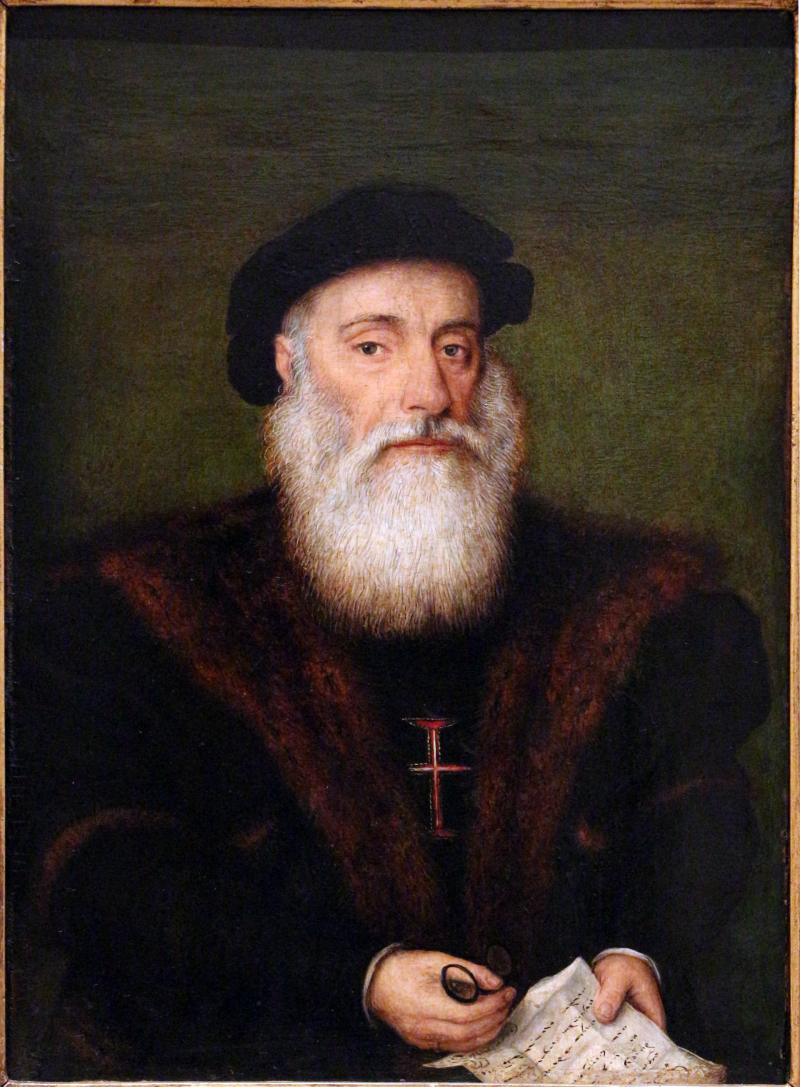Vasco da Gama
Vasco da Gama, 1st Count of Vidigueira (c. 1460s – 24 December 1524), was the first European to enter India by water. His first trip to India via the Cape of Good Hope (1497-1499) was the first to use an ocean route to connect Europe and Asia, connecting the Atlantic and Indian oceans. This is often regarded as a watershed moment in world history, as it signaled the start of a sea-based period of global multiculturalism. Da Gama's discovery of the maritime route to India ushered in an era of global imperialism, allowing the Portuguese to construct a long-lasting colonial empire stretching from Africa to Asia. The violence and hostage-taking committed by Da Gama and others who followed earned the Portuguese a harsh reputation among India's indigenous kings, laying the groundwork for western colonialism in the Age of Exploration. Traveling by sea permitted the Portuguese to avoid sailing over the contentious Mediterranean and via the perilous Arabian Peninsula. The total distance traveled on the outgoing and return voyages made this mission the longest ocean voyage ever undertaken up to that point.
Da Gama landed in Calicut on May 20, 1498, after decades of sailors attempting to reach the Indies, with thousands of lives and dozens of vessels lost in shipwrecks and attacks. Unrestricted access to the Indian spice trade helped the Portuguese Empire's economy, which was previously based in northern and coastal West Africa. Initially, the principal spices obtained from Southeast Asia were pepper and cinnamon, but other items, all new to Europe, were quickly added. For numerous decades, Portugal held a market monopoly on certain commodities. Other European countries, first the Dutch Republic and England, then France and Denmark, were unable to challenge Portugal's monopoly and naval dominance on the Cape Route until a century later.
Da Gama commanded the first and fourth Portuguese India Armadas. The latter was the largest and left for India four years after the first one returned. In recognition of his contributions, da Gama was appointed Governor of India in 1524, with the title Viceroy, and was ennobled as Count of Vidigueira in 1519. He is still regarded as a pivotal figure in the history of exploration, and tributes to his achievements have been paid all around the world. Luís de Camões wrote the Portuguese national epic poem Os Lusíadas in his honor.











